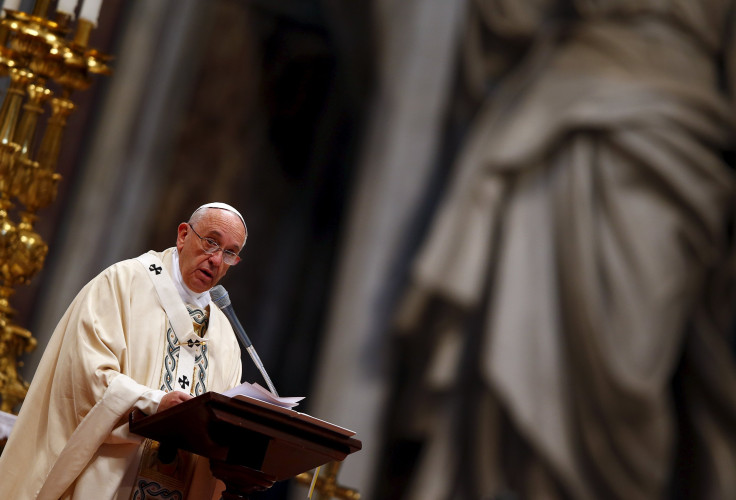Pakistan Christian Persecution: Pope Francis Prays For Asia Bibi, Christian On Death Row For Blasphemy

As Pakistani Christians become increasingly concerned about their safety in the wake of a spate of violent incidents against their community, Pope Francis has drawn attention to the case of an imprisoned Pakistani Christian woman who was sentenced to death in 2010 after being convicted on controversial blasphemy charges. The pontiff gave a special greeting to the family of Asia Bibi during his Wednesday General Audience, saying he would pray for her and all the persecuted Christians in Pakistan.
Bibi’s family are currently in Rome to urge European leaders to put pressure on the Pakistani government to release Bibi. Pakistan’s highest court is reviewing an appeal of the imprisoned woman’s sentence to death by hanging, the final legal step before the sentence can be carried out. “If the Church will get involved it could be [easier to secure her freedom],” Bibi’s lawyer, Joseph Nadeem, said in an interview with Vatican Radio on Wednesday.
Bibi has maintained her innocence, claiming that the blasphemy charge against her was retaliation for a squabble with other villagers in her rural Punjabi community. Bibi was arrested in 2009 after getting into an argument with Muslim field workers when the women refused to drink from a bucket of water she had touched because she was not Muslim. The Christian woman, a mother of five, was later accused of defiling the name of the Prophet Muhammad, a capital offense according to Pakistan’s penal code.
The case has come to symbolize the problems with Pakistan’s blasphemy legislation, which critics argue has been misused by authorities to settle political disputes and pressure unpopular individuals or minorities. While no death sentence has ever been carried out against those convicted for violating the law, vigilantes have in the past targeted accused blasphemers, including a Christian couple lynched and burnt to death by an angry mob in November 2014.
Because blasphemy is such a sensitive subject in Pakistan, it has been very difficult to change the laws, in place since the 1980s. Those politicians who have even attempted to raise the subject of reform have faced harsh, if not fatal, consequences. In 2011, two of the most notable politicians publicly lobbying for reforms to the law were murdered. The governor of Punjab province, Salman Taseer, was shot dead by his own security guard for speaking out against the law and supporting Bibi. Two months later, Minorities Minister Shahbaz Batti, the only Christian member of Pakistan’s cabinet, was assassinated in Islamabad after he recommended Bibi’s release.
These incidents have also highlighted the challenges of Pakistan’s Christian community as it faces increasing threats of violence against a rising tide of religious intolerance. The latest case of violence this week saw a 14-year-old Christian boy beaten and set ablaze in Lahore after reportedly identifying his religious beliefs to a pair of Muslim youths. The attack comes less than a month after twin bombings at churches in Lahore that left at least 14 people dead. The church attacks prompted Pope Francis to call for solidarity with the country’s Christian minority, who were being persecuted for their beliefs. Christians are Pakistan’s second-largest minority group after Hindus and make up 1.6 percent of its 182 million population.
© Copyright IBTimes 2024. All rights reserved.






















